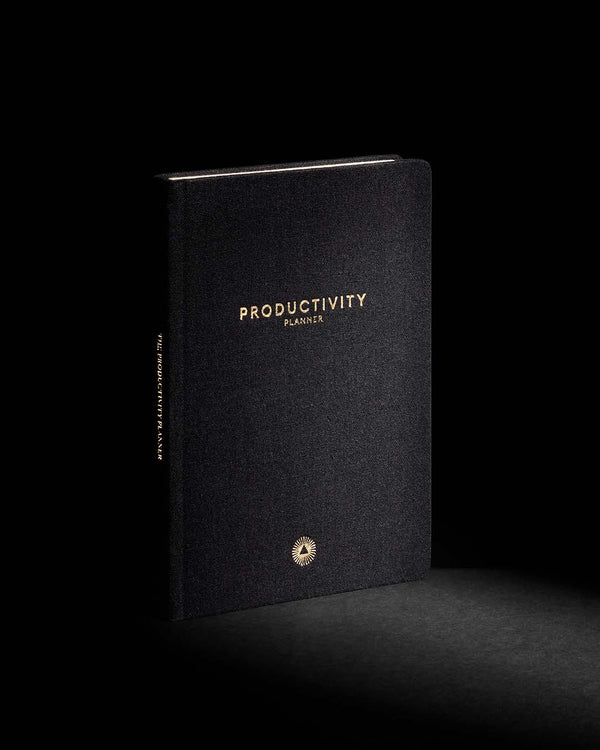4 Wiser Questions to Become a Productivity Superstar (for you)

1. Why do I want to become more productive? → What am I willing to struggle for?
On the surface, asking “why” you want to become more productive seems like a great way to begin.. Simon Sinek has a nice talk on the subject. The problem is the “why” behind your career aspirations. They are often too vague to be useful:
- I want to spend more time with my kids → Time Freedom
- I want to travel more → Time Freedom / Financial Security
- I don’t people telling me what to do → Power /Creative Freedom
- I want to make a difference →Impact
Knowing that you want financial security is very different than executing the actions to obtain financial security. Does it help provide fuel to forge ahead when times get tough? Absolutely. If you want financial security because you want to help your sick child get the best treatment possible is better than a vague sense of wanting it to buy a Ferrari. In either case, however, the deeper question remains:
What are you willing to struggle for in order to obtain the life you want?
Are you willing to rise through the corporate ranks dealing with politics and arbitrary bullshit to become a VP or CEO? Are you willing to give up your nights and weekends as you side hustle to get a new business off the ground?
In a 4D consulting session (business consulting session), an entrepreneur asked Gary Vaynerchuk how he could run a business building a personal brand and travel 3-4 months every year. Gary first had to remind the entrepreneur that to get the life of a one percenter, you need to do the 1% work; all the small details. You will need to spend hours to get good at something, years receiving little attention/feedback for content you put out. In other words, patience and practionership.
Everybody wants the good life. The better question is are you willing to earn it?
2. What is the minimum I need to do to feel satisfied with my day/week? → What is the minimum amount of work I need to do to feel satisfied with my day/week AND what is the upper bound?
"Horses understand the whip, but I don’t want a racer that runs that way. A horse that loves to run will beat a horse that’s compelled, every day of the week. Never train your animal to exhaustion. Leave him wanting more."
–Steven Pressfield
Do you often have the vague sense that you could be doing more? Social media definitely does not make it easier as we get ambushed with montages of all the grinding, hustling, and overcoming of odds. As inspiring as these stories are, it can also leave you feeling like you are on a perpetual hamster wheel:
-
It’s not enough that you ran 2 miles today, you should have run 5 miles.
It’s not enough that you wrote 1 page today, you should have wrote 2 pages.
It’s not enough that your company makes $1 million, you should make $1 billion.
It’s common when setting goals or habits that we set a target to aim towards but this usually represents the minimum result we’d be satisfied with. But how do you prevent overtraining? Do you have the discipline to know when to pack it in and call it a day, even when you could do more?
On Joe Rogan’s podcast, World Kickboxing Champion Firas Zahabi explains the difference between Russian wrestlers and American wrestlers:
You are more likely to reach your end goal if you do a little bit each day and week and build up. Think volume over intensity.
As Atomic Habits author James Clear notes, what if you added an upper bound to your goals:
- “I want to lose at least 5 pounds this month, but not more than 10.”
- “I want to make at least 10 sales calls today, but not more than 20.”
- “I want to write at least 500 words today, but not more than 1,500.”
- “I want to make at least 50 free throws today, but not more than 100.”
Like Steven Pressfield's quote above, we can whip ourselves like a horse and perhaps even become very accomplished. But did you enjoy the journey to get there? Burnout awaits you.
3. How do I get more done → What limited amount of things will I focus on and what will I actively NOT do?
At first I couldn’t believe my eyes at what I was seeing: A Pizza and Poke restaurant. It takes some people their entire lives to achieve mastery at making one of them, let alone two. After reading reviews, it was clear, they did both (shocker) very mediocre.
Sometimes the above does work out (Korean tacos anyone?), but it speaks to a deeper issue and curse of the 21st century: choice.
- I am interested in whiskey distilling, graphic design, cooking, playing guitar, and fitness. How can I make all or some into a career?
- I can do FB Ads, content marketing, Instagram, podcasts, YouTube, or events to market my business. How do I do it all as a marketing team of one?
- I like to do all different types of photography - landscapes, portraits, black and white, color, HDR, minimalist, punk...how can I choose one direction?
To solve this dilemma, we turn to the “slash” career people:
-
Will Smith first started out as a rapper. He spent multiple years as a rapper before turning to acting.
- Mark Manson first started out as a relationship coach, writing about dating advice for men. As much of this advice overlapped with general self-improvement tips, once he had an audience he expanded to self-improvement advice. Ramit Sethi first started providing 1-on-1 financial advice before writing a book on the subject and subsequently creating a course on freelancing called Earn 1K.
As Derek Sivers says, “Don’t be a donkey”:
If you’re 25 now, and have seven different directions you want to pursue, then you can do each one for 10 years, and have done all of them by the time you’re 95. (It’s safe to assume that by the year 2088 it won’t be unusual to live to 95.)
Of course, it doesn’t have to be 10 years. It can be faster than that too! You can spend months mastering one subject and combining it with something else, i.e. 6 months mastering the fundamentals of graphic design and then another 6 months getting good at selling your services for real estate agents in your area.
The hardest part is emotional. It’s deciding “I am going in THIS direction, and I’m NOT going to pay attention to all this other stuff for A CERTAIN PERIOD OF TIME.
- Perhaps you commit to being a freelancer for 6 months. Actively ignore your friends talking about getting promoted or changing your direction. You need to shut out the “voices” that can distract you but you must always be mindful of feedback, good and bad.
- Maybe you commit to website design for a consumer packaged goods companies. That means you focus on CPG events, newsletters, key figures. You actively ignore everything outside of this space. You do not get tempted to contact a clothing retailer.
- Maybe for the next 3 months you commit to content marketing via YouTube. That means you learn the ins and outs of what works on YouTube from titles, description, length, sharing your video across the internet. You actively ignore Medium, Snapchat, Linkedin, FB Ads...all the channels that are NOT YouTube.
Furthermore, it should be added that not all things you love have to be turned into a career. As Tim Wu, Columbia Law School Professor, writes:
It’s easy to confuse our actions with our identity. In the realm of productivity, we associate not getting things done as being a “lazy person” or a “loser.”
Furthermore, even if we are accomplishing a lot, it can be easy to still think we are not doing enough, i.e. “What I accomplished is NOTHING compared to that guy.” How do we get off this self-destructive hamster wheel?
You may think that the remedy is to identify with being a “productive” person – an identity level shift. At first it seems great because you begin asking yourself questions like, “what would a productive person do in this situation” and ride the emotional high of becoming more productive with your newfound productivity hack. However, you are still dividing the world into two.
- If I am a productive person, I am good.
- If I am not a productive person, I am bad.
You are still attaching your fundamental self-worth based on a set of arbitrary metrics of “success.”
Here’s a more fundamental question: What if you gave up having an opinion of yourself entirely?
Really let that one sink in for a moment.
Maybe you are afraid to give up your opinion of yourself because you think you’ll lose your moral compass. Here’s why it need not be an objection:
Compare these two responses:
- “Oh that didn’t work. I am a bad person.”
- “Oh that didn’t work. He was hurt. I shouldn’t do that again.”
We want to be “better.” We want to “be more productive.” We want to ______”
That’s what gets us into so much “trouble” in the first place: We end up changing our opinion of ourselves based on every single action…."I did not do 10 reps a set; I did not meet my monthly sales target; Janice got promoted over me", I must be a horrible person. Not at all! Focus on your actions and their impact and look at the big picture. If your actions are causing harm or upset to others, then you need to change course and then you look inward and evaluate how you are affecting others. These self-worth evaluations are often overly subjective and not the real picture.
We are not saying stopping to manage your opinion of yourself is an easy task. You may even start judging yourself for judging yourself, the feedback loop from hell. It’s going to take practice to first recognize it, label it, and move past it.
Remember the old adage: “If at first you do not succeed, try, try again”. Pick yourself up, dust yourself off, and keep moving forward, without self-worth entering the picture at all.








